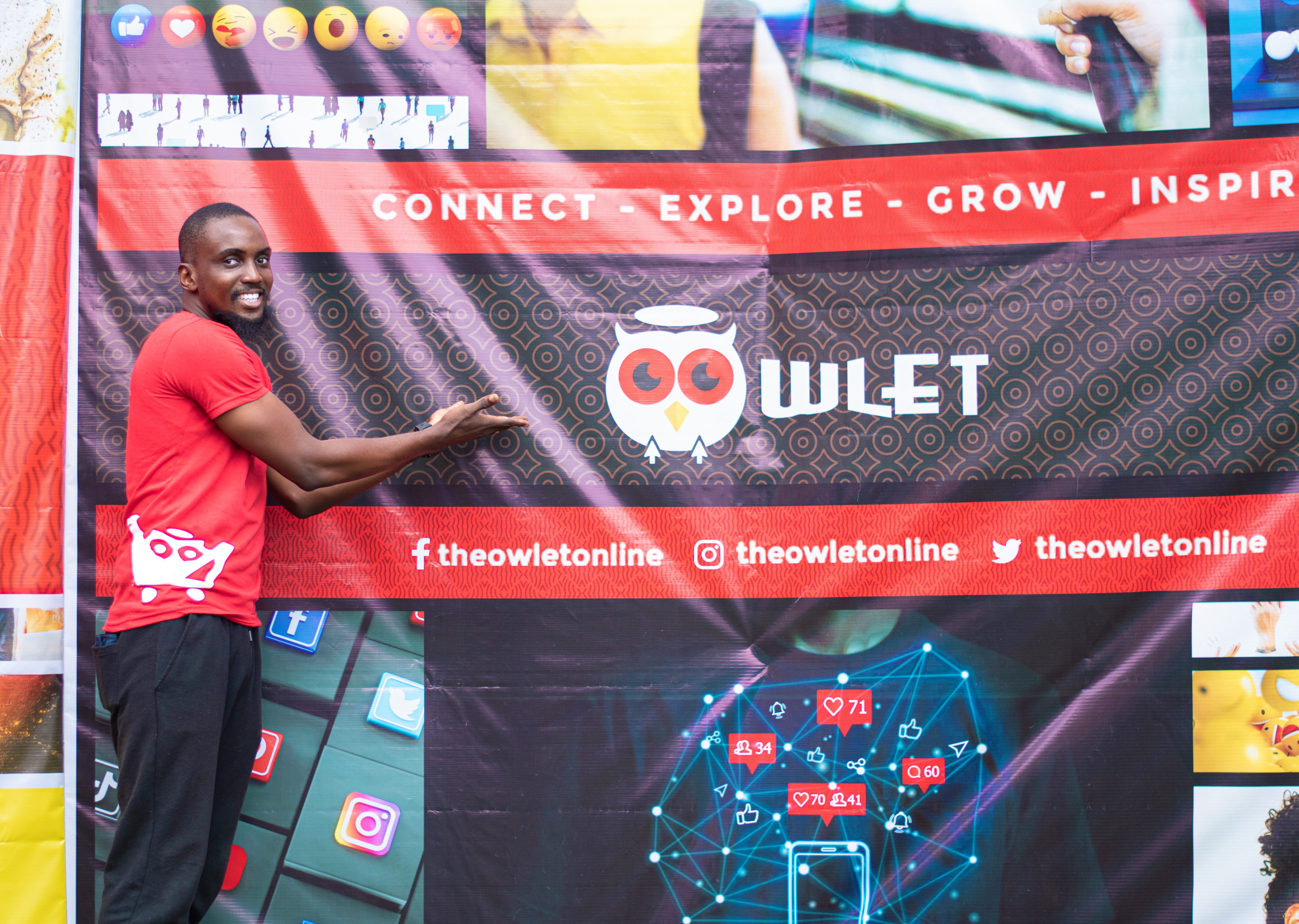Imagine a social media platform strictly for e-commerce businesses; LinkedIn meets Instagram Shop meets Facebook Marketplace. The Owlet app, dubbed Africa’s first social media marketplace, is an online community for businesses.
Users who sign up are treated to a digital storefront where they can sell their products to their followers, who are their customers. If they are content creators, then their content is their products.
The startup journey
Elijah Kolawole Olusehinde, the CEO of The Owlet Ltd, a digital product brand that includes the Owlet app, Owlet Online and Owlet P2P, initially started the company as Owlet Online in June 2020 to cater to the needs of entrepreneurs looking to meet new customers. Like many startups do, he started small with only two employees. The Owlet has expanded to over 108 employees across ten Nigerian states, with outposts in Ghana, Uganda, and Kenya, in just under two years.


Olusehinde’s mandate is clear; why go through the hustle and bustle of the physical market when you can meet your customers where they are, on the internet?
“After years of working in the market as a young child, I noted how inefficient physical markets are for buyers and sellers”
The Owlet CEO in an interview with Technext
“I watched elders and nursing mothers, who came to buy goods, struggle to manoeuvre around crowds of people. Nigerian markets are inconvenient, especially in Lagos, where overcrowding and transportation to and from the market are problems,” he added.
E-commerce has become a vital tech industry in the last decade. But regardless of this e-commerce boom in the industry, companies offering online marketplace services have struggled to attain profitability. However, Olusehinde said he doesn’t see those other businesses as competitors.


“Our aim as a company has always been to help people shop more conveniently while enabling businesses to make more sales than ever. With this core vision in view, we do not see any competitors,” he said.
Path to profitability
The Owlet has made huge strides, evident in some 20,000 transactions that the company said have been carried out on the app with over 70,000 vendors and 30 million orders since its launch two years ago.
“The Owlet was a personal project. Its funding came from my pockets. However, the company reached sustainability quickly and has since started expanding. We have not taken any additional investors/funding. This decision is because we do not want to distract ourselves, chasing profitability. We recently crossed 20,000 transactions on The Owlet App, and celebrated this milestone across our offices,” Olusehinde said.
Olusehinde and the owlet team didn’t achieve this by chance.
“Human beings are set in their ways. We struggled to get customers to use the product despite seeing how valuable our product was. Buyers did not see how they could casually shop food cooking items from the comfort of their homes and have them delivered safely. The sellers struggled to believe they could make more sales on our platform and build better customer relationships,” he said.
And so he went back to the drawing board to change the marketing strategy and then came in the results.
Plus, not many of the founders who have struggled to profitability in the e-commerce space have the experience that Olusehinde has, having grown up, as he said, in the market. He said that he knows that sellers have an appetite for this type of tech product to solve some of the problems they face.


“The market experience was not ideal for the sellers either. I saw how difficult it was for Nigerian businesses to get customers’ attention,” he said of his motivation to start the business. “Sellers shouted or blared loud music to attract attention and ran between shops, struggling to meet the demands of their customers. I established that the shopping experience in Nigeria could use a change, and that was how the idea for an online marketplace came along.”
Challenges
For a company that hasn’t raised money yet, Owlet has been undertaking massive in-person marketing campaigns, storming large markets preaching about the app, signing up businesses on the platform, and offering traders crash courses on bookkeeping.
“We changed our marketing approach early on,” he said. “We designed outreach teams to go out and help both parties (buyer and seller) to understand the value of The Owlet. They also helped them register their businesses and accounts and onboarded them. This tactic achieved significantly higher results,” he added.


Even then, profitability is still a very long journey. Currently, Owlet doesn’t take a cut from sales on its platform, like many other e-commerce companies. The startup makes money solely by charging vendors for targeted advertising on the platform.
The company is still just in its early stage and will have time to discover what its business strategy will be in the future. In the immediate, however, Olusehinde said that the plan is massive expansion across Africa by 2028.






